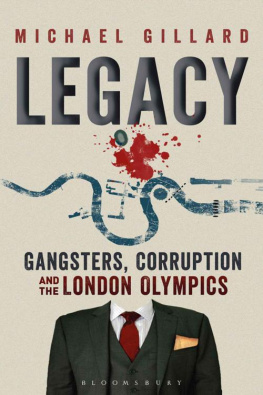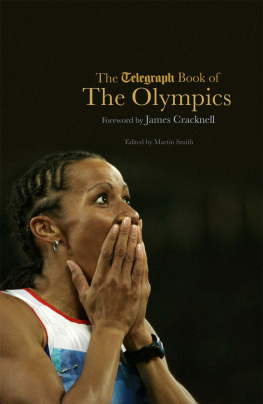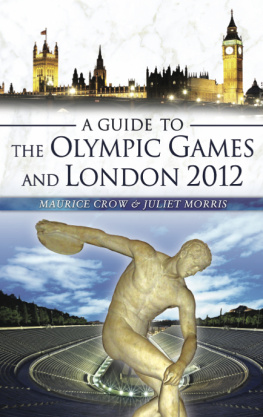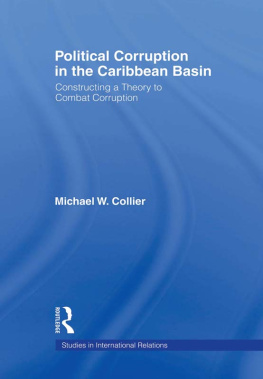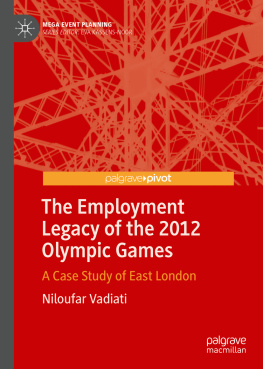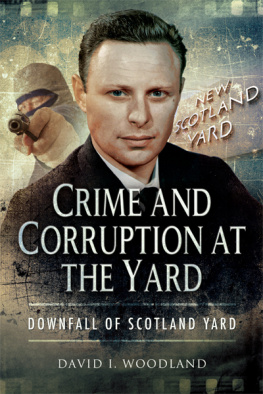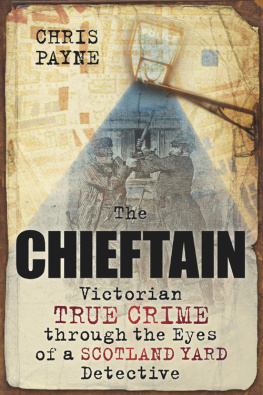
BY THE SAME AUTHOR
Untouchables
For Queen and Currency
For fallen colleagues murdered in pursuit of dirty cops, crooks and the big rich

Who runs things?
The same people who run things everywhere.
The cops, the crooks and the big rich?
Who else.
Hammett (1982)
Contents
The important thing in life is not the triumph, but the fight; the essential thing is not to have won, but to have fought well.
The Olympic Creed
The breaking news sent officials at the Olympic stadium into a panic. Londons closing ceremony was just hours away but the heavily choreographed event, themed around the history of British pop music, might have to be cancelled for safety reasons.
Eight miles away, one of the largest waste recycling plants in Europe had caught fire and a menacing cloud of toxic smoke was drifting slowly towards the new stadium. Hundreds of firefighters had been attacking the blaze since the afternoon but couldnt get it under control. The London Fire Brigade told reporters theyd seen nothing like it and feared the heat could trigger an explosion at a nearby oil depot. Scrambled helicopters periodically buzzed above the inferno in Dagenham, filming a spaghetti junction of hoses spraying the burning shell of a one-storey building by the Thames.
The name of the recycling business was of little consequence to short-tempered television types scheduled to broadcast the closing ceremony to an estimated 750 million viewers at 9 p.m. Even if they had looked, the land registry revealed little but an innocuous-sounding company registered offshore in the British Virgin Islands.
In truth, the toxic cloud emanating from the recycling plant represented more than just a threat to the closing ceremony. It was a metaphor for the violent and corrupting influence that its owner, a leading UK crime lord known as the Long Fella, exerted over the Olympic borough of Newham and beyond for the last three decades. An alternative battle for gold one of death threats, broken bones, political chicanery and crooked deals had recently ended in defeat for a small group of local detectives who were all that stood in his way.
What began as a battle for control of a lucrative strip of land in Newham had become a test of whether London stood for anything more than a cosmopolitan laundry for malodorous men and their money.
In ancient Greece, the Newham crime squad would have been garlanded for putting up a good fight against the odds. But these were risk-averse times of brave hearts led by desk drivers, bean counters and back stabbers; light-touch regulatory times where money had no smell. Still, with one arm tied behind their backs, the detectives had carried on coming forward, determined to expose Londons hidden wiring where organised crime, politics and big business met. Until, that is, Scotland Yard decided to throw them under the bus.
Protecting the legacy of the 2012 Games by covering up a scandal of suspicious deaths and corruption was more important to the police and politicians than protecting Londoners from the predatory Long Fella and his friends in suits. For others at Scotland Yard, the crime lord was simply too big, too dangerous to take on which, for all its pre-Olympics bluster, was a sad indictment of the UKs biggest police force.
By five thirty that afternoon on 12 August, Dany Cotton, the director of safety and assurance, was able to announce that her firefighters had contained the blaze and the greatest show on earth could go on. There was just enough time for the ten thousand athletes to take their places in the new stadium alongside Britains pop aristocracy, politicians and the bloated male relics of the tainted International Olympic Committee.
After several hours of show business, any trace of a toxic cloud over east London had faded away under a dazzling display of fireworks, political hyperbole and The Who belting out My Generation.
This is the story of that smokescreen.
In 2000, the British Olympic Association (BOA) delivered to Prime Minister Tony Blair what they hoped would be the bid that brought the greatest sporting show on earth to Londons much-transformed East End.
The BOA was convinced that in the host borough of Newham, a deprived Labour stronghold, London had found the best chance of beating Paris, Madrid, New York and Moscow. The bid document to host the 2012 summer Games was not something the prime minister felt particularly optimistic about. Blair was already working on his own east London legacy to rival predecessor Margaret Thatchers trailblazing Canary Wharf and Docklands redevelopment. His involved a multibillion-pound project to boost the economy of London, Essex and Kent by reclaiming brownfield land and building new homes along the Thames, right up to its estuary.
The Thames Gateway Development and Olympic projects would eventually dovetail and foreshadow new entertainment hubs, a massive shopping centre, banker penthouses, casinos and pop-ups with deconstructed pie n mash for hipsters. Britons were already binging on a government-sponsored housing and credit boom. The illusion of greater personal wealth hid the toxic truth that debt was unsustainable and financial fraud on the rise, while politicians and regulators turned a blind eye or conspired in the swindle.
According to his autobiography, Blair was sceptical that London could win the Olympic bid against main rivals Paris and Madrid. Nevertheless, forty-eight hours before the vote on 6 July 2005, the prime minister put on that famous rictus grin and lobbied representatives of the International Olympic Committee (IOC) in Singapore. The initial rounds of voting saw Moscow followed by New York and then Madrid knocked out. A little before 1 p.m., IOC president, Jacques Rogge, took to the stage with the rest of the blazerati of largely old, pale, male members to announce the winner.
One of them, however, was missing from the lineup. Ivan Slavkov, the IOC member for Bulgaria, had been secretly filmed offering to sell votes to undercover BBC journalists. He was duped, along with other IOC agents, into believing they were consultants for fictional businesses with an interest in the 2012 Games coming to Newham. The resulting documentary was more powerful because the IOC claimed it had cleaned up its act after a spate of similar scandals, the latest involving Salt Lake Citys bid to secure the 2002 Winter Games. The Americans lavished some $15 million on IOC members and their families, and it worked. But no one went to prison when the extent of US largesse was revealed. The bid team said they were simply following an Olympic tradition.
Back in Singapore, some in the UK bid team wondered if the BBC documentary would ruin their chances, despite the frantic last-minute schmoozing of IOC members by Blair and his wife.
Standing in front of IOC President Rogge was the nervous figure of Conservative peer Sebastian Coe, a former Olympian and the man in charge of Britains bid. Next to him was Ken Livingstone, the socialist mayor of London, who was convinced that Paris had won because the media were hovering all over the French bid team. Rogge put paid to the speculation by opening the ornate envelope containing the decision. The International Olympic Committee has the honour of announcing that the games of the 30th Olympiad in 2012 are awarded to the city of London, he declared without dramatic pause.
The ballroom erupted in shrieks and yells as British reserve was abandoned and the bid team, dressed in beige and blue, hugged each other, jumped up and down and punched the air. Losing by just four votes, Paris was praised for a near-flawless bid. The British team kept telling reporters that the IOC had clearly recognised Londons ambitious promise of a legacy games, not just for the capital, but also for international youth who it hoped would be inspired to put down their games consoles and get into sport.
Next page
